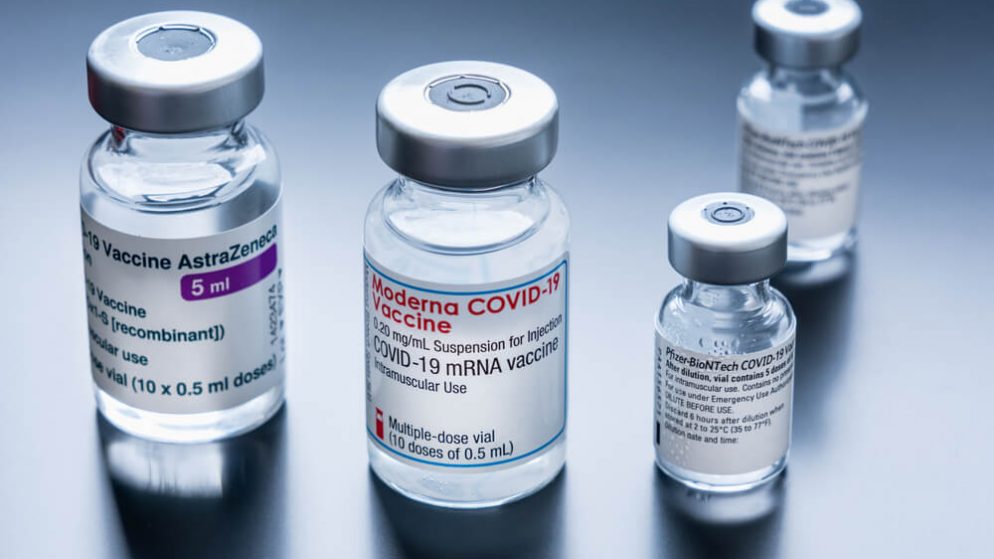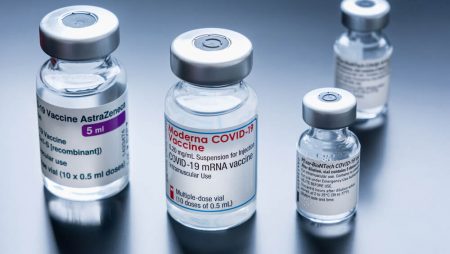



Get new exclusive access to healthcare business reports & breaking news




Moderna, Inc. announced August 17th that preliminary clinical trial data confirm its updated COVID-19 vaccine for the fall 2023 vaccination season showed a significant boost in neutralizing antibodies against EG.5 and FL.1.5.1 variants.
These results suggest that Moderna’s updated COVID-19 vaccine may effectively target the expected circulating variants of COVID-19 during the upcoming vaccination season.
The World Health Organization (WHO) recently classified the EG.5, or “Eris,” strain as a variant of interest. EG.5 is now the dominant variant in the U.S. according to the Centers for Disease Control and Prevention (CDC),1 while also accounting for a growing proportion of cases across the globe. The FL 1.5.1, or “Fornax,” variant is also beginning to surge in parts of the U.S.
The fast-spreading variant, the most prevalent in the United States with an estimated more than 17% of cases, has been behind upticks in the virus across the country and also has been detected in China, South Korea, Japan and Canada, among other countries.
“These new results, which show that our updated COVID-19 vaccine generates a robust immune response against the rapidly spreading EG.5 and FL 1.5.1 strains and reflects our updated vaccine’s ability to address emerging COVID-19 threats,” said Stephen Hoge, M.D., President of Moderna. “Moderna is committed to leveraging our mRNA technology to provide health security around the world.”
The news is also encouraging for the company’s projected revenues, impacted by the shift from government contracts to the private market.
On August 3rd, Moderna forecast $6-8 billion in revenue from its COVID-19 vaccine from both government contracts and selling to a private market this year.
In addition to demonstrating a human immune response against the EG.5 and FL 1.5.1 strains, Moderna previously presented the only clinical trial data confirming that its updated COVID-19 vaccine showed robust human immune responses across the key circulating XBB strains at the June 2023 FDA VRBPAC. With this new trial data, Moderna has now confirmed an antibody response against current strains of concern.
Moderna and its COVID-19 vaccine rivals Pfizer and Novavax are each preparing to market shots this fall before an expected surge in infections.
The Food and Drug Administration is expected to decide on their use by the end of August, so the updated vaccines can be rolled out alongside annual flu shots.
Vaccination still remains a high health priority. The World Health Organization is determined to maintain the momentum for increasing access to COVID-19 vaccines and will continue to support countries in accelerating vaccine delivery, to save lives and prevent people from becoming seriously ill.
Countries should continue to work towards vaccinating at least 70% of their populations, prioritizing the vaccination of 100% of health workers and 100% of the most vulnerable groups, including people who are over 60 years of age and those who are immunocompromised or have underlying health conditions.
Providing vaccines to countries where access to healthcare is more difficult and adapting to new variants of the coronavirus has been an ongoing battle for pharma giants all over the world, since the virus kept mutating. Late June last year, for instance, Pfizer Inc. and BioNTech SE announced positive data evaluating the safety, tolerability, and immunogenicity of two Omicron-adapted COVID-19 vaccine candidates: one monovalent and the other bivalent, a combination of the Pfizer-BioNTech COVID-19 Vaccine and a vaccine candidate targeting the spike protein of the Omicron BA.1 variant of concern. In 2022, Moderna made public an agreement with Adium Pharma S.A., a leading private Latin American pharmaceutical company, to support the commercialization and distribution of the Moderna COVID-19 vaccine, Spikevax across Latin America.
Now, Moderna has submitted its updated COVID-19 vaccine to the U.S. Food and Drug Administration, the European Medicines Agency (EMA) and other regulators around the world. Pending authorization, it will be ready for fall vaccination with sufficient global supply.
In over 10 years since its inception, Moderna has transformed from a research-stage company advancing programs in the field of messenger RNA (mRNA), to an enterprise with a diverse clinical portfolio of vaccines and therapeutics across seven modalities, a broad intellectual property portfolio and integrated manufacturing facilities that allow for rapid clinical and commercial production at scale. Moderna maintains alliances with a broad range of domestic and overseas government and commercial collaborators, which has allowed for the pursuit of both groundbreaking science and rapid scaling of manufacturing. Most recently, Moderna’s capabilities have come together to allow the authorized use and approval of one of the earliest and most effective vaccines against the COVID-19 pandemic.
Moderna’s mRNA platform builds on continuous advances in basic and applied mRNA science, delivery technology and manufacturing, and has allowed the development of therapeutics and vaccines for infectious diseases, immuno-oncology, rare diseases, cardiovascular diseases and auto-immune diseases. Moderna has been named a top biopharmaceutical employer by Science for the past eight years.